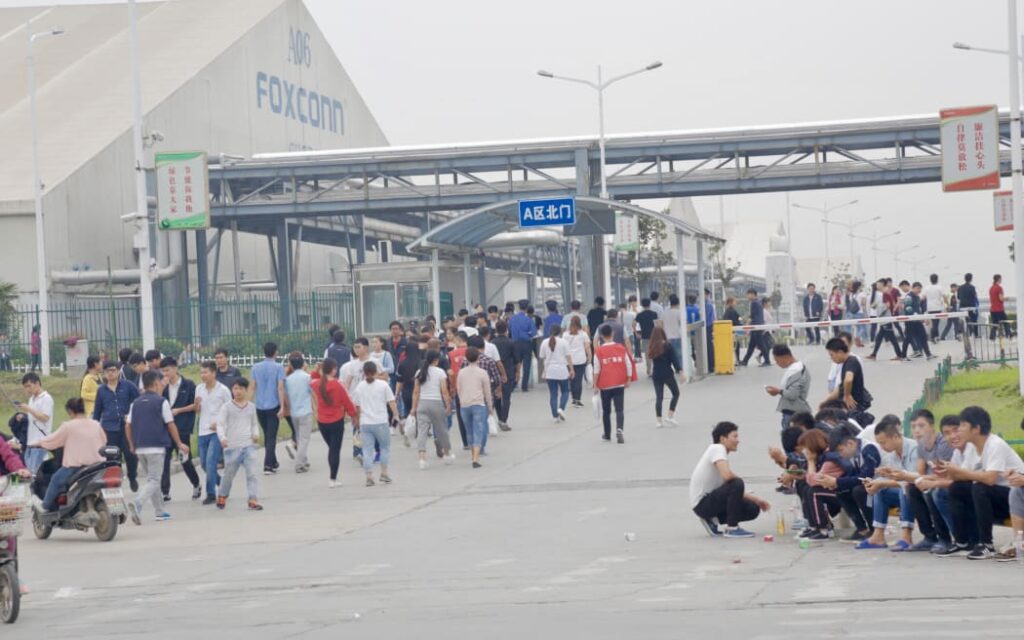Virendra Pandit
New Delhi: Amid reports of a recurrence of Covid-19 in the northern hemisphere of the planet in the coming winter weeks—in the last three years, this coronavirus has evolved over 300 variants and sub-variants worldwide—China on Wednesday clamped a seven-day lockdown in Zhengzhou in the area around the world’s largest iPhone manufacturing plant where a fresh wave of the pandemic forced thousands of workers to flee in the last few days.
The fresh lockdown of the Taiwanese firm Foxconn Technology Group’s main plant in Zhengzhou will severely curtail shipments, the media reported.
This is part of China’s Zero Covid policy, under which millions of people in dozens of cities and towns across the country have remained under lockdowns for prolonged periods, despite popular protests against the brutal execution of these severe measures.
On Wednesday, Zhengzhou’s local officials posted a directive on their WeChat account, announcing a lockdown until November 9.
Until the next Wednesday, they will permit no vehicles to operate in the prohibited area except for those carrying necessities, the government said.
Officials ordered the lockdown after Zhengzhou reported Covid-19 cases jumping from 95 on Monday to 359 on Tuesday.
Ever since the then US President Donald Trump called the coronavirus a “Chinese virus” in 2020, Beijing has been trying to shake this monkey off its shoulders. While the world has largely reopened, despite occasional outbreaks here and there, China remains the only country to continue with its ongoing Zero Covid measures.
The abrupt action reflects this ongoing attempt to stamp out outbreaks. Lockdowns have already thrown the Chinese economy into a recessionary mode and disrupted global supply chains.
The latest move might further disrupt Foxconn’s main operations base. The Taiwanese company, whose main listed arm is Hon Hai Precision Industry Co., is currently grappling with a Covid-19 flare-up that forced some of its 200,000 staff into quarantine and pushed many others to flee the facility recently–some jumped the fences or fled even on foot.
The lockdown could complicate efforts to recruit and bring in new staff and ship production materials to keep operations going, the reports said.
The company is trying to sort out the potential disruption by raising wages and arranging for backup from its other Chinese plants. In recent days, it also struggled to quell social media speculation that some of the infected staff had died.
The lockdown comes at a crucial time for Apple, which launched the iPhone 14 during an unprecedented slump in global electronics demand. It backed off plans to increase production of its new iPhones this year as its projected demand failed to materialize. It reported better results but warned of a holiday slowdown.
Foxconn’s Zhengzhou facility handles 80 percent of the capacity for the iPhone 14 series, with over 85 percent of iPhone 14 Pro capacity based there. Any disruption could severely disrupt Apple’s supply chain, as most of its components are imported into Zhengzhou for assembling manually into devices and then exported.

